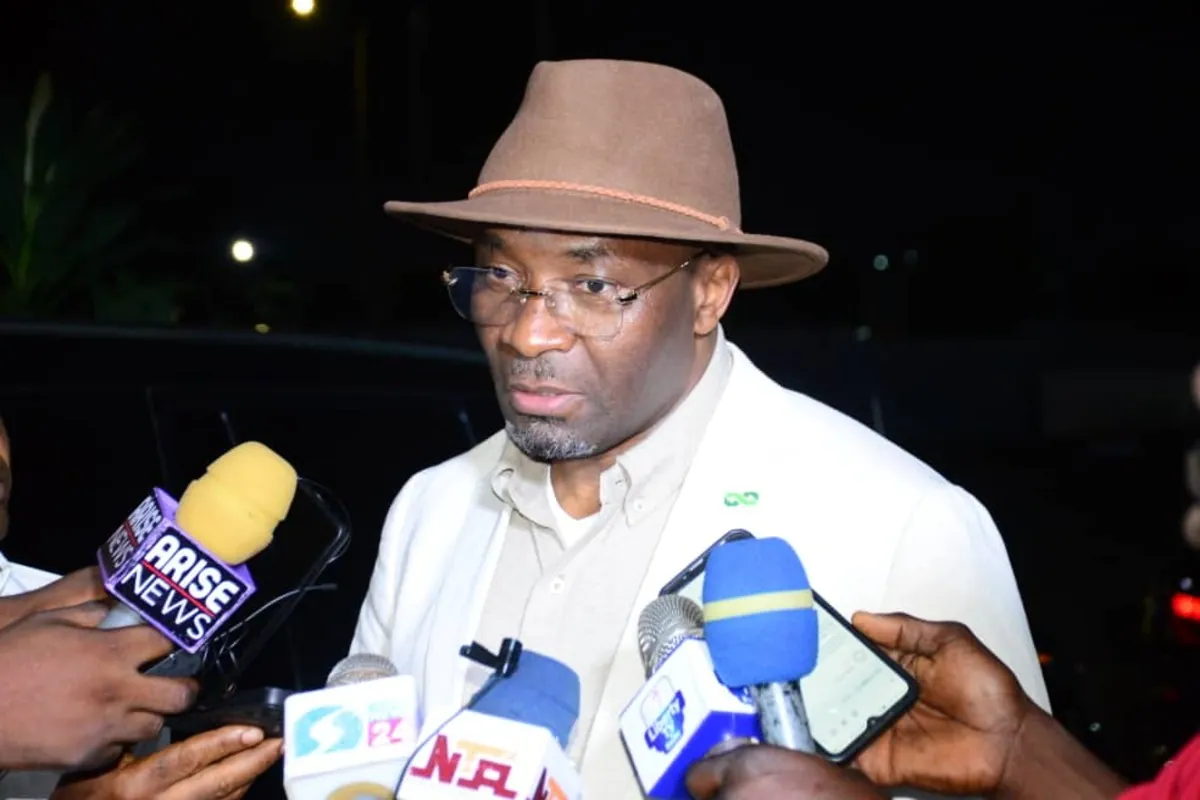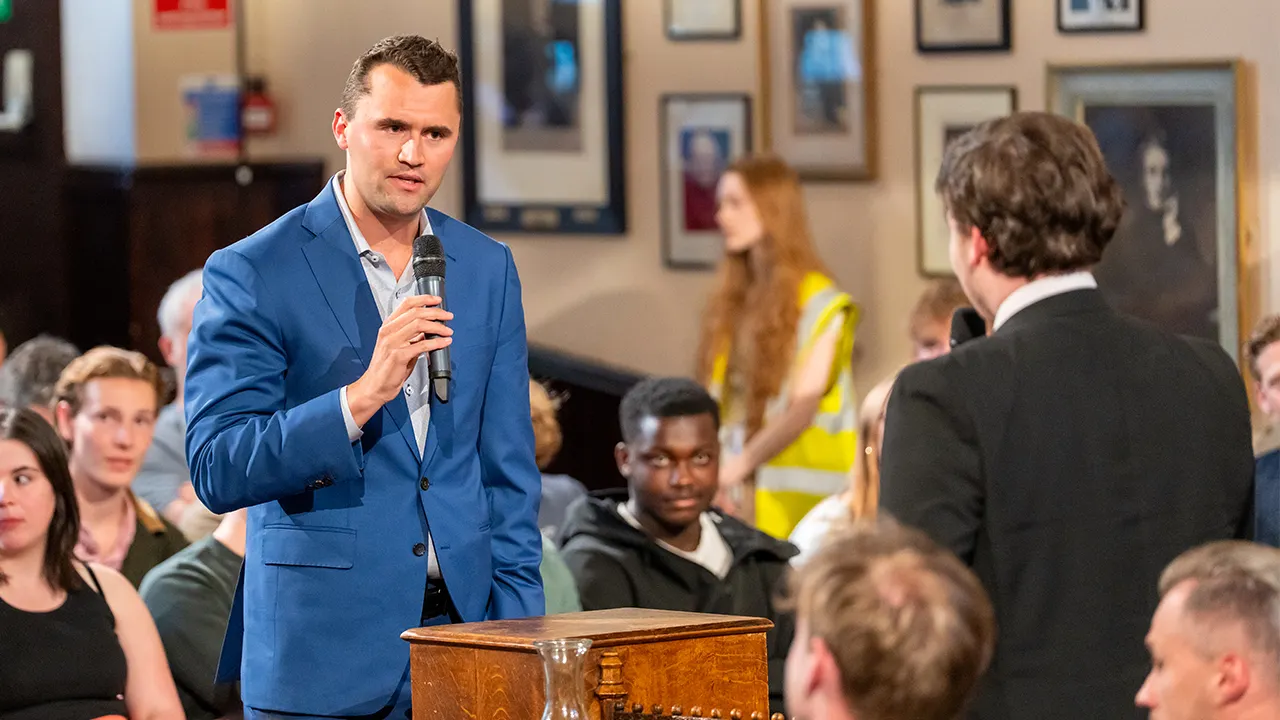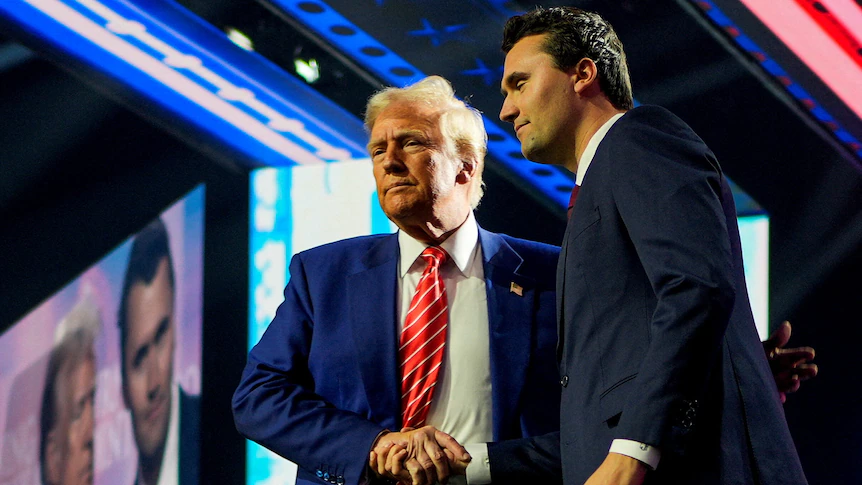By Kehinde Akintola
Copyright tribuneonlineng

…applauds citizens’ resilience after fuel subsidy removal, other economic reforms
…to meet local contractors to ascertain the level of compliance on payment of outstanding liabilities
Deputy Speaker of the House of Representatives, Benjamin Kalu, on Saturday averred that Nigeria can no longer delay the creation of state police if it hopes to tackle its security challenges effectively.
Kalu, who stated this on arrival from Geneva, Switzerland, where he attended the 55th Parliamentary Conference on the World Trade Organisation/Inter-Parliamentary Union (WTO-IPU) Public Forum 2025, said Nigeria’s current centralised policing structure was inadequate and far behind global standards.
Earlier hosted by Nigerian students at Harvard Kennedy School in Massachusetts, United States, Hon. Kalu said the only way this can be achieved is to unbundle it from its current structure by removing the Police from the Exclusive List to the Concurrent List.
He said: “On the state police bill that is before the parliament, we are thinking about the response time of policing in Nigeria, which at the moment is below the global standard. The only way we can achieve this is if we unbundle it from the way it is centralised like what other countries are doing: Municipal police, State Police. And just the constitution is clear on what is on the concurrent and exclusive lists.
“Certain subject matters will now be handled by the State Police and Federal Police respectively if we set it up and break it down the way Nigerians want it, and that’s why we are calling for the national public hearing on Monday.”
While acknowledging the sentiment raised over hijack of the State Police by State Governors, the Deputy Speaker expressed the need for Nigerians to “have this conversation on issues like this to know whether you want it or not, or should it be tailored in one way or the other.
“There may be fears of hijacking it, but we cannot deny the majority of Nigerians the security of lives and property that we promised them as a government.
“So, we should be looking at the bigger picture. Everyone in Nigeria may not be a politician, but everyone needs the security of their lives and property. That’s why we are calling for a public hearing. So, we should be looking at the bigger picture, because not everybody in Nigeria is a politician, but everybody in Nigeria needs security of lives and property. So we are saying, which one should we go for? The greater good or the fear of the minor threats. I think we should go for the greater good. And the goodness that is in the majority will suppress the threats that is in the minority.
“So, I try to bring them up to speed with a whole lot of things happening in Nigeria. And they have invited me to come back again to have a wider conversation on more issues.”
Speaking on the socioeconomic reforms initiated by President Bola Tinubu’s administration, the Deputy Speaker, who applauded the high level of patriotism and resilience of Nigerians across the country in the wake of the fuel subsidy removal and other bold economic reforms, stressed that the difficult decisions were necessary to put the country on the path of sustainable growth.
He said the Nigerians in diaspora showed keen interest in the government’s reforms and in issues of representation.
“The engagement was to have an appraisal of what we are doing, bring them up to speed with what the government is doing regarding reforms. How far the reforms have fared and where we are headed. You and I know that Nigeria needed this reform. There’s no two ways about it.
“We needed a leader with courage, a leader with boldness to be able to take the steps the President has taken. Some of us who are in the same administration with him, though we’re in the other arm of government, we are standing fully with him on this reform. Removing the subsidy launched us into an era of seeing things the way they are, feeling the pain, and then adjusting so that we can enjoy better later on.
“And many may have thought we were going into recession and the rest of them. But we weathered the storm, and I want to thank Nigerians. As Nigerians, we are very resilient. And we were able to stand with him. Today, the dynamics have changed.”
The Deputy Speaker also commended the State governments for helping to diversify the economy, saying it will increase job creation and boost the economic well-being of the citizens.
He urged Nigerians to stay engaged, patient, and supportive of the reforms, while also participating actively in shaping policies such as the state police bill.
“Just imagine 36 States engaging in productive engagements, outings, whether it’s in agriculture, in production, and also the rest of them, it will create more jobs, increase our wealth. And I think that is the intention of these reforms. I was happy when I saw the president say in August that their target for revenue had been achieved for the year. It’s a step towards the right direction.
“It may not be so cosy, but it’s leading us where it’s supposed to lead us. And we needed a President with balls, a President with courage to do this. And we thank him for having the courage and Nigerians for supporting him to get this done the way it has been done. We are looking forward to the benefits of these reforms, going forward.
“This is the time for everybody’s hands to be on deck. We cannot afford to be distracted. It is time to move Nigeria forward,” he said.
The Deputy Speaker also highlighted his role in shaping global discussions on digital trade during the Geneva Conference.
He revealed that Nigeria was among the eight countries represented on the WTO/IPU steering committee, which examined how to make digital trade an engine of inclusive growth.
Kalu argued that for the African Continental Free Trade Agreement (AfCFTA) to succeed, digital trade must be embedded as a central pillar.
“Digital trade is taking the day across the world at the moment, increasing economic growth by about 25 percent,” he said. “We must fit into this space, both globally and as a continent.
“Our argument was that there should be a legislative tracking tool that would enable countries to measure how far they have gone with implementing laws on digital trade and compare progress. Sub-regional and continental bodies like ECOWAS, the Pan-African Parliament, and the IPU should take this up,” he explained.
He further disclosed that Nigeria and other African delegations pressed for Afrocentric issues to feature prominently at the forthcoming WTO Ministerial Conference (MC14) scheduled for Yaoundé in March 2026.
“As we talk about multilateralism, Africans and their problems must be on the table, not outside the room,” he emphasized.
Kalu also pushed for the passage of a bill reserving seats for women in Parliament, stressing that the exclusion of women from politics was holding back Nigeria’s democratic and economic progress.
“You cannot talk about advancing democracy when you’re leaving 50 per cent of the population outside the room. It makes policies one-sided,” he said.
The Deputy Speaker further pointed out that issues such as child rights, women’s rights, and humanitarian concerns often carry more depth when driven by women lawmakers.
“This is not compensation for women. It is an economic necessity. McKinsey and the World Bank have shown that countries with more women in decision-making grow faster. A country standing on one leg, relying on one gender, will lag economically,” he said.
Kalu explained that he and 12 other lawmakers had sponsored the bill and that advocacy efforts had begun early in this Assembly, with members increasingly supportive.
On the clamouring for diaspora voting, the Deputy Speaker reiterated his long-standing support but cautioned that Nigeria must first strengthen its local electoral system.
“Rome was not built in a day. It will happen, but we must first put our house in order. If Nigerians say during constitutional amendment hearings that they want it, we will look at the possibility,” he explained.
Hon. Kalu also shed light on his intervention in the crisis involving local contractors, particularly in the Federal Capital Territory, who threatened strike action over unpaid fees.
He said the approach of “legislative diplomacy” helped to calm tensions and secure commitments from government agencies.
“Though we are three arms of government, we are one government. The objective of the President is our objective too. We will not allow the executive to fail and then stand aside. That is not how to drive an emerging democracy,” he said.
He recalled that the meetings with the Ministers of Finance and Budget, Wale Edun, the Accountant General of the federation, Shamsudeen Ogunjimi and other stakeholders at the instance of the Speaker Abbas Tajudeen, the penultimate week, led to significant progress as payments have been made.
“We took the contractors off the streets. They kept their word not to return to protest, and the government has kept its word by paying. We will review the situation again on the 21st to ensure progress continues,” Kalu said.
On the seven-day threat notice issued by the waste cleaning contractors over non-payment of 9-month dues owed by the FCTA, Kalu promised to personally engage the FCT Minister, Nyesom Woke, with a view to amicably resolving the crisis.
“The FCT has no House of Assembly. We are their Assembly. We will not allow services to collapse,” he assured.
Kalu emphasised that while he remains engaged globally, having been invited by Harvard and MIT for future discussions, his priority will always be Nigeria.
“My WTO program was still on, but duty called, and Nigeria comes first before the globe,” he declared.
ALSO READ TOP STORIES FROM NIGERIAN TRIBUNE



